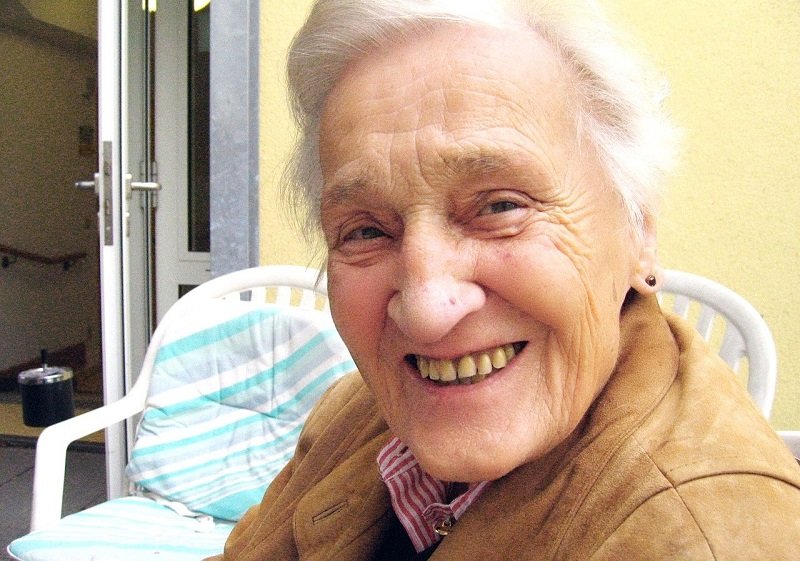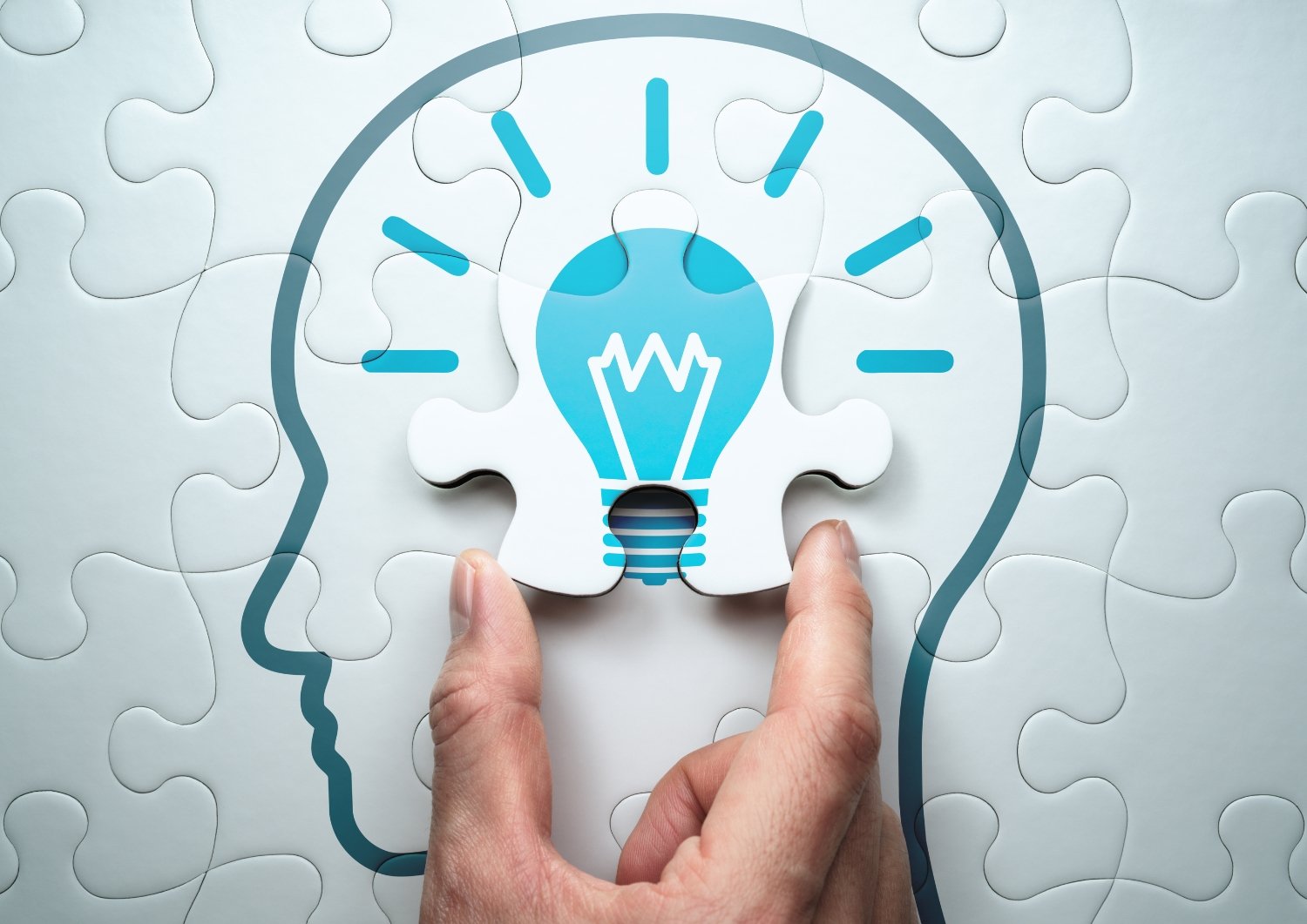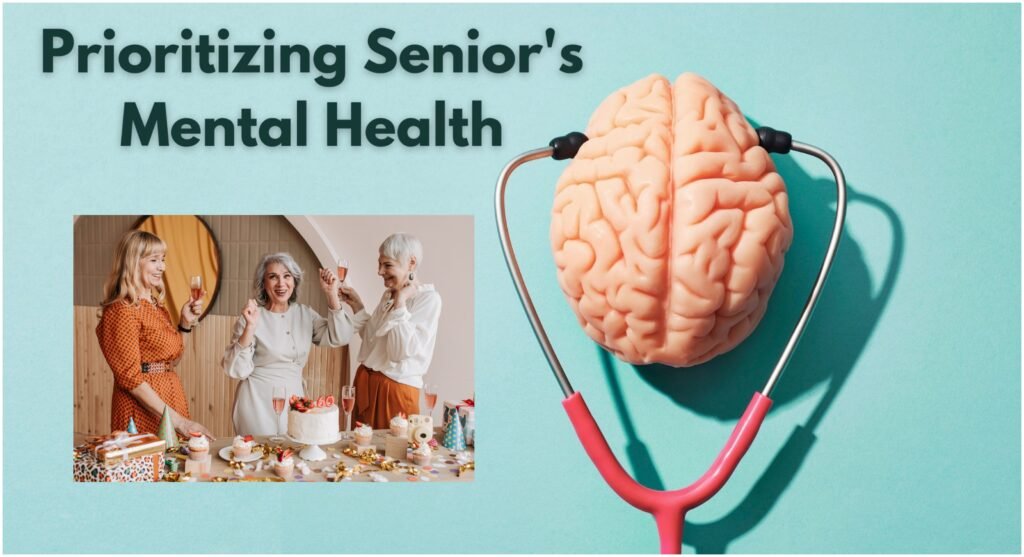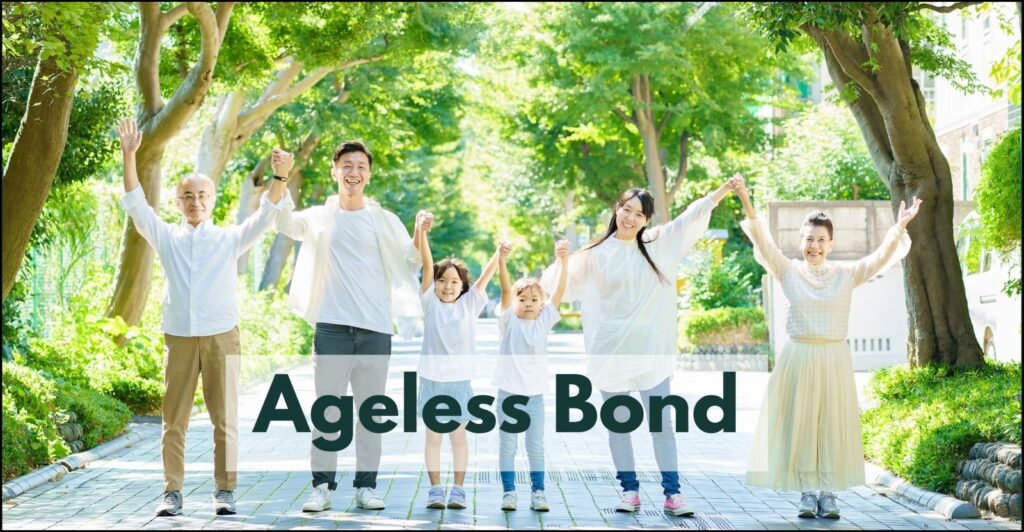Beyond Myths: What Neuroscience Reveals About Age and Wisdom

Last Updated on July 3, 2025 by Rose Ann
For generations, we’ve assumed wisdom grows naturally with years – yet modern life sometimes makes us question this connection. Groundbreaking neuroscience now clarifies how lived experience transforms our minds. This article explores five evidence-backed ways age and wisdom intertwine, moving beyond myths to reveal how your brain actually evolves.
You’ll discover:
- How cognitive encapsulation turns decades of experience into specialized mastery
- Why what appears as “slowing down” signals a richer mental library
- The practical problem-solving edge unique to experienced minds
- Integrative thinking – the hidden skill that synthesizes complex situations
- Why emotional intelligence peaks later in life
Recent studies confirm age and wisdom are partners in cognitive evolution – not because years automatically confer insight, but because accumulated experience creates distinct neurological advantages. While no one is wise every moment (at any age!), this research celebrates the authentic strengths that emerge when age and wisdom converge.
Ready to see how your brilliant mind works differently now? Let’s explore.

The Science Behind Old Age and Wisdom
Recent neuroscience research has revolutionized our understanding of how age and wisdom work together to create cognitive advantages. Studies show that while some processing speeds may change with age, crystallized intelligence — the wisdom gained through experience—continues to grow throughout your entire life.
What makes the connection between age and wisdom so powerful? Your brain has been building what scientists call “cognitive reserve” — a vast network of neural connections formed through decades of learning, problem-solving, and life experiences. This reserve doesn’t just preserve function; it enhances it in remarkable ways.
Current research from the National Institute on Aging demonstrates that mature brains show increased bilateral activation, meaning they use both hemispheres more effectively than younger brains. This enhanced connectivity is a direct result of the age and wisdom relationship, allowing for more comprehensive thinking and better decision-making.
Prefer to listen rather than read?
Lifelong Specialization Can Make Older People Experts in Specific Areas of Knowledge
Imagine yourself in a wheelchair being rolled into a hospital emergency room after a life-threatening injury to your chest. You are gasping for breath. Your heart is racing so fast you worry it is about to explode. You are convinced you are about to die.
Imagine two doctors arguing over how to care for you – one is old with grey, thinning hair and stiff movements, and the other is quick, fast-talking, and young. Who would you trust with your life? Would the relationship between old and age and wisdom matter to you then?

When it comes to choosing a doctor, some might lean towards younger professionals, influenced by the notion that fresh minds are sharper. Yet, William Hoyer’s research opens up a different perspective, highlighting that while aging can impact general problem-solving skills, it doesn’t dim the light of old age and wisdom.
In fact, older doctors who have treated a lot of patients often shine brighter in their fields, proof of the depth of their experience and knowledge. This remarkable skill enhancement, known as encapsulation, showcases how, over time, seasoned professionals channel their cognitive abilities into their areas of expertise more efficiently.
So, while age might bring some challenges, it also fosters a unique kind of proficiency, rooted in years of practice and learning. This old age and wisdom, enriched through countless experiences, make older adults exceptionally adept in their specialties. Remember, the choice of a doctor should go beyond their age, focusing instead on the wealth of understanding and insight they bring to the table, promising not just treatment, but wisdom-guided care.
Did you know that, as we age, our brains change in fascinating ways? A study from Harvard Medical School revealed something quite interesting. While some parts of the brain, like the hippocampus, might get a bit smaller, other aspects of our brain actually improve! The branches of our brain cells, known as dendrites, grow more connections, and different parts of the brain start working together better.
This is where the old saying “old age and wisdom” really comes to life. It means that as people get older, they might just get better and sharper at what they do best. Think about it: a mechanic who has been fixing cars for decades, a philosopher who has spent years pondering life’s big questions, or a carpenter who has crafted countless pieces of furniture. Their experience counts for a lot!
So, if you’re ever worried that getting older means slowing down, remember the other side of the coin. Old age and wisdom often go hand in hand, bringing a depth of knowledge and expertise that’s hard to beat.
Whether it’s a doctor with years of experience or any professional who has honed their skills over time, there’s a unique value in what they bring to the table. Let’s celebrate and appreciate the incredible insights and abilities that come with age!

Older People Have a Larger Store of Information in Their Brains
There is a common perception that cognitive abilities, including memory and processing speed, tend to decline in old age. Well, it turns out that’s not the whole story. A fascinating study in Topics in Cognitive Science sheds new light on this topic, and it’s something we should all pay attention to. It reveals that when it comes to old age and wisdom, there’s a lot more going on than meets the eye.
While it’s true that cognitive processing speed may slow down with age, the study suggests that this slowdown isn’t entirely due to a decrease in mental capacity. Yes, it’s true that things like remembering names or doing math in our heads might take a bit longer as we get older.
But, according to this study, it’s not because our brains are simply slowing down. Instead, think of an older person’s brain as a super-computer packed with data. Over the years, they’ve gathered so much knowledge and so many experiences that their mental “library” is just overflowing!
Naturally, sifting through this vast mental library takes more time tahn accessing a smaller database, as is the case with younger individuals who have accumulated less information.
Imagine trying to find a single book in a massive library compared to a small bookshelf. It takes more time, right? That’s what’s happening in the brains of older adults. They’re not losing their touch; they’re just navigating through a much larger collection of information. This is where the true value of old age and wisdom comes into play.
So, the speed of cognitive processes might appear slower in older individuals, but that is not necessarily an indicator of reduced cognitive ability. Old age and wisdom do not necessarily mean quick thinking, it seems. While younger people were faster in tests of cognitive performance, older people showed “greater sensitivity to fine-grained differences,” the study found.

Older People May Be Better at Solving Practical Problems
Diving into the concept of wisdom can feel like a puzzle, especially when we link it to the journey of aging. There’s a unique blend of old age and wisdom that comes with its own set of challenges. Imagine this: as we age, we encounter various hurdles, and to navigate these effectively, we need a deep well of knowledge. This kind of insight doesn’t just appear overnight; it’s the result of years of experience, both good and bad.
In today’s fast-paced society, where everyone is constantly moving, the art of pausing to reflect is becoming a rarity. It’s intriguing to note a study that found people often prefer a slight electric shock over sitting quietly with their thoughts when left alone without distractions. This might sound extreme, but it highlights our constant need for stimulation and how rare it is to embrace quiet reflection.
Yet, society often expects our seniors to be reservoirs of quick wisdom, sharing their old age and wisdom in a snap. This expectation can be daunting in a culture that prizes speed over depth. However, the wisest among us understand the value of this slow, thoughtful journey and navigate it with elegance and patience.
Old age and wisdom were at the core of the research led by the psychologist Nancy Denney of the University of Wisconsin in the late 1970s. Denney and her team tested the problem-solving abilities of people across all age groups in two different scenarios.
In the first problem type, participants engaged in a game involving deductive reasoning. They were shown pictures of common objects and had to deduce, through a series of yes or no questions, which object the examiner was thinking of. The findings showed that the older the participants were, the worse they did in the test.
The second type of problem involved real-life situations—practical problems that individuals might encounter in their daily lives.
These scenarios required participants to demonstrate problem-solving skills in situations like dealing with a flooded basement, being stranded in a blizzard, or handling a late-arriving child.
Interestingly, the study found that older individuals performed exceptionally well in this aspect of problem-solving. They showed higher levels of self-reliance and were better at recognizing causes and generating effective solutions based on their experiences in everyday life.
While variations of this same test have yielded inconclusive results over the years, there is some evidence to suggest that although older adults might face challenges in certain types of cognitive tasks, they often excel in practical problem-solving skills that draw upon their wealth of life experiences and expertise in everyday situations.

Seniors Are Superior Integrative Thinkers
Researchers compared teh abilities of college students and older adults to summarize a retelling of a fable about a wolf and a crane. In the fable, a wolf promises to reward a crane for removing a bone stuck in the wolf’s throat. The crane agrees and puts its head into the wolf’s mouth to dislodge the bone with its beak.
Afterwards, when the crane asks for the promised reward, the wolf replies that the crane’s reward is that it is still alive. Interestingly, both age groups were able to recall the story in detail, but their approaches to summarizing it differed significantly.
The younger college students tended to provide longer and more elaborate summaries, detailing various aspects of the story. On the other hand, the older group – with an average of 74 – presented shorter summaries.
The summaries of the older people were not only to the point but also integrated the moral of the story with observations drawn from their life experiences and real-world knowledge. They were able to connect the moral of the fable with their personal experiences and observations from the real world.
This reflective and integrative thinking is associated with a stage of intellectual development referred to as “post-formal thought.” In many ways, post-formal thought might be the closest to a measurable link between old age and wisdom that researchers have found thus far.
This stage goes beyond formal operational thinking – a characteristic of younger individuals – and involves the ability to consider complex and multifaceted aspects of a situation, incorporating subjective interpretation and real-world wisdom.
Such integrative thinking has broader social and emotional implications. It suggests that senior citizens might excel in leadership roles and are likely to do well in offering inter-generational mentoring services to the youth.
This is especially true in moral or spiritual domains, as they can synthesize diverse perspectives and experiences to make informed decisions.

Aging Increases Emotional Intelligence
As individuals progress through the stages of life, they encounter a myriad of changes that affect their physical, mental, and emotional well-being. While some may perceive aging as a period marked by a decline in various abilities, recent research has unveiled a fascinating discovery that challenges this notion.
Studies have revealed that as individuals age, their emotional intelligence tends to soar to new heights, making old age and wisdom go together. Emotional intelligence, commonly known as EQ, encompasses the capacity to identify and regulate one’s own emotions, alongside the ability to comprehend and relate to the emotions of others.
This uptick in emotional intelligence can have a significant impact on an individual’s overall state of being and the quality of life they experience. As the years pass by, individuals accrue a wealth of experiences that shape their emotional intelligence. The wisdom garnered through life’s trials and triumphs equips them with a deeper understanding of their own emotions and those of others.
This heightened emotional acuity enables individuals to navigate complex social situations with finesse and empathy, fostering deeper connections with those around them. Moreover, this increase in emotional intelligence can serve as a protective factor against mental health issues such as depression and anxiety, bolstering an individual’s resilience in the face of adversity.
By honing their capacity to express themselves effectively and understand the perspectives of others, individuals can embody the virtues of old age and wisdom, cultivating harmonious relationships and fostering a sense of mutual respect and understanding.
It’s Okay to Be Older and Still Do Stupid Things from Time to Time
While defining wisdom is a problem in and of itself, it seems clear that there is some connection between old age and wisdom. First and foremost is that old age and wisdom come at a cost. Growing old – with all the inevitable aches, pains, and deteriorations of old age – and carefully thinking things through a greater store of knowledge takes time. It can be also unpleasant.
These days, most of us – young and old, men and women alike – would rather do anything than think. A recent study highlights an intriguing aspect of human behaviour and the modern condition of constant stimulation.
Conducted by psychologists, this research found that when individuals were left alone in a room with no external stimulation, such as a phone, book, or any form of entertainment, many of them preferred to administer electric shocks to themselves rather than sit in silence and engage in quiet contemplation.
But society demands that older people think, be quick, and dispense wisdom or else fall victim to total indifference – or worse, age discrimination. Intelligent older people quickly learn these lessons.
So, next time you find yourself banging your head and asking yourself, ‘How could I have done something so stupid at my age?’ try to remember that you are trapped in the same situation as many millions of other people who have both old age and wisdom.
You don’t have to be wise all the time. It’s all right to make stupid mistakes from time to time, too. What do you think?
Frequently Asked Questions About Old Age and Wisdom
- How does the relationship between age and wisdom actually improve cognitive function?
- The age and wisdom connection creates what scientists call “crystallized intelligence” — accumulated knowledge and skills that continue to grow throughout life. Your decades of experience have built neural networks that allow for more sophisticated thinking, better pattern recognition, and superior decision-making abilities that younger brains haven’t developed.
- At what age does the age and wisdom advantage become most apparent?
- Research suggests that the cognitive benefits of age and wisdom become increasingly apparent after 60, with many abilities continuing to improve into the 80s and beyond. Crystallized intelligence, emotional regulation, and complex problem-solving often peak in later decades, making your current years potentially your most cognitively powerful.
- Can the age and wisdom connection help compensate for any age-related changes in processing speed?
- Absolutely! While processing speed may change, the age and wisdom combination often leads to better outcomes because wisdom allows for more efficient problem-solving. You often reach better solutions faster than younger adults because your experience helps you recognize patterns and avoid unnecessary steps.
- How do I know if I’m maximizing my age and wisdom advantages?
- Signs that you’re leveraging the age and wisdom connection include feeling more confident in decision-making, finding that others seek your advice, being able to see “the big picture” more clearly, and feeling that your perspective on complex issues has deepened and become more nuanced over time.
- Is it true that some cognitive abilities actually improve with age?
- Yes! Research confirms that several cognitive abilities improve with the age and wisdom connection, including vocabulary, general knowledge, emotional regulation, and the ability to solve complex social problems. Your brain becomes better at integrating information from multiple sources and applying life experience to new situations.
- How can I help others understand the value of the age and wisdom connection?
- Share examples of how your perspective and decision-making have improved with experience. Highlight times when your wisdom led to better outcomes than quick, inexperienced decisions. The age and wisdom advantage becomes obvious when you demonstrate the superior results that come from combining knowledge with experience.
- What if I feel like my memory isn’t as sharp as it used to be?
- It’s important to distinguish between different types of memory. While you might occasionally forget where you put your keys, your wisdom-based memory—your ability to recall relevant experiences and apply them to current situations—is likely stronger than ever. The age and wisdom connection enhances the most important types of memory for daily life and decision-making.
- How does the age and wisdom connection affect creativity?
- The marriage of age and wisdom often enhances creativity by providing a vast repository of experiences to draw from. Your creative work is enriched by decades of emotional and intellectual experience, leading to deeper, more meaningful creative expression. Many artists, writers, and innovators produce their best work in their later years thanks to this age and wisdom advantage.
References
- National Institute on Aging. (2024). Cognitive Health and Older Adults.
- Mass General Brigham. (2024). Third Major Study Finds Evidence that Daily Multivitamin Supplements Improve Memory and Slow Cognitive Aging in Older Adults.
- Henry Ford Health. (2024). Multivitamins and Memory: How Supplements Can Protect Aging Brains.
- Oxford Academic. (2024). National Institute on Aging’s 50th Anniversary: Advancing Cognitive Aging Research and the Cognitive Health of Older Adults.
- Canada.ca. (2024). Brain Health and Cognitive Impairment in Aging Research Initiative.





